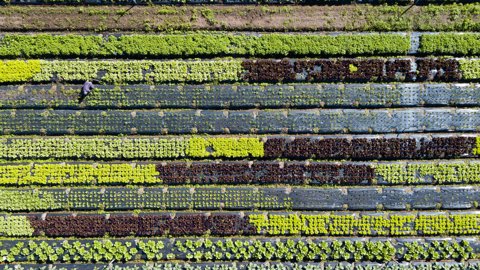APG, on behalf of its pension fund client ABP, is investing up to €250 million in Dutch energy business SkyNRG to enable the development and adoption of Sustainable Aviation Fuel (SAF) worldwide. The funding will support the continued growth of SkyNRG’s platform. Its first SAF production facility will be built in Delfzijl, the Netherlands. Jan Jacob van Wulfften Palthe (Associate Director, Infrastructure at APG) and Carlo Maddalena (Senior Director, Infrastructure at APG) discuss the characteristics of this deal and other developments regarding SAF.
In a nutshell
• The Delfzijl plant is expected to become operational in 2028, producing up to approximately 120,000 tonnes of SAF per year.
• The facility is designed to process low-quality oils and fats, that would otherwise be burned, while deliberately avoiding mainstream commoditized waste cooking oils and virgin vegetable oils.
• Other pipeline projects will use different technologies such as eSAF, a synthetic aviation fuel produced using renewable electricity, green hydrogen, and captured carbon dioxide.
The aviation sector—one of the most challenging industries to decarbonize—contributes approximately 2.5 percent of global annual CO2 emissions. “As the transition to net zero accelerates, SAF offers a viable pathway towards decarbonizing the sector,” says Van Wulfften Palthe. “It utilizes renewable feedstocks and can be blended with or replace fossil jet fuel. SAF’s key advantage is its "drop-in" compatibility, integrating seamlessly into existing aircraft and fueling infrastructure without modifications, unlike hydrogen or battery-electric alternatives that require extensive redesigns.”
SAF can achieve a minimum emissions reduction of 80 percent compared to fossil jet fuel over its lifespan. Maddalena adds: “This investment reflects APG’s commitment to enabling real-world decarbonization of transport through long-term, forward-looking partnerships. SkyNRG is uniquely positioned to help drive the aviation sector’s transition to net zero, and we are thrilled to support the company’s next phase of growth.”
Building the global SAF market
Founded in 2009 and headquartered in Amsterdam, SkyNRG has been instrumental in building the global SAF market, supplying more than 30 airlines across six continents and enabling the world’s first commercial SAF-powered flight in 2011. The company provides SAF to airlines to reduce their scope 1 emissions as well as to corporates (including APG) for aviation-related scope 3 emission reduction. “With APG's support, SkyNRG is well positioned to enhance its production capabilities and help drive the aviation sector’s transition to net zero. The Delfzijl plant is expected to become operational in 2028, producing up to 120,000 tonnes of SAF per year, with secured offtakes from airlines. This will contribute to the aviation industry's net-zero commitment by providing affordable alternatives to fossil fuels, thereby reducing lifecycle carbon dioxide emissions. This aligns with the EU Regulation (ReFuelEU Aviation) that sets a target of a 6% SAF share at EU airports by 2030 and 70% by 2050.”
SkyNRG offers a rare opportunity to invest in first-of-its-kind infrastructure with high climate impact and strong market fundamentals, adds Van Wulfften Palthe. “This partnership fits squarely within our strategy to deploy capital into scalable energy transition platforms.”
Repurposing low-quality oils and other technologies
“The cheapest way to produce SAF currently is from waste oils and fats, with cooking oil being one of the most well-known sources,” says Van Wulfften Palthe. “However, there will not be enough waste oils in the world to fuel airplanes. Additionally, creating sunflower or palm oil fields to produce oils for SAFs is not a sustainable solution either. So, what does SkyNRG do? Instead of using cooking oils, which have other uses, they utilize low-quality oils that would otherwise be burned. For example, oils used in car paint factories can be repurposed to make SAF. These oils are used in the painting process, and the residual products can then be used to create alternative fuels.”
But there are still not enough of these raw materials to make the entire airline industry CO2-neutral, continues Van Wulfften Palthe. “That is why SkyNRG also focuses on other technologies such as eSAF in Sweden with project SkyKraft, where we aim to generate sustainable electricity through a combination of wind energy and CO2 molecules.”
Dominating the market
According to Van Wulfften Palthe, eSAFs represents the future of sustainable fuels for aviation, though they remain prohibitively expensive for now. “To put it in perspective, the SAF soon to be produced in Delfzijl is expected to cost four to five times more than conventional kerosene, while eSAF can be up to ten times more expensive,” he explains. “This cost disparity is why the EU has set lower initial targets for eSAF compared to regular SAFs. Nevertheless, the long-term outlook is promising: there is sufficient availability of captured CO₂ and renewable electricity to scale up eSAF production. As a result, eSAFs are expected to eventually dominate the market in the long run.”
Completion of the transaction is subject to customary regulatory approvals and is expected to take place in the second half of 2025.



